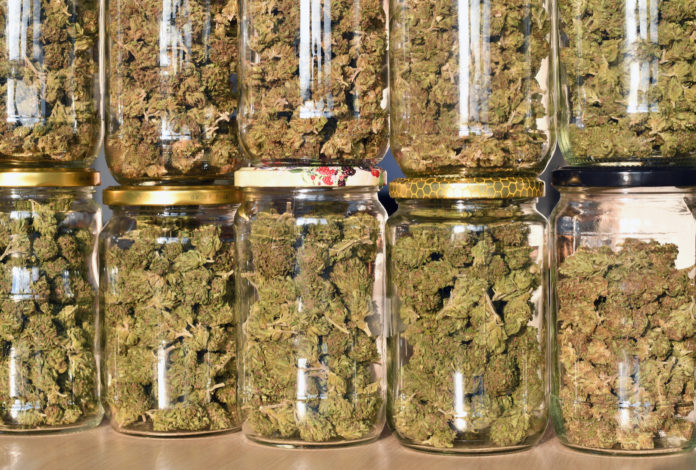April 20 is increasingly becoming a mainstream event as dispensaries deal with huge crowds and excitement on the high holiday of cannabis. However, what is a fun day for consumers is a day for high-volume business and data analysis for those within the industry. Now that the dust is starting to settle let’s look at how impactful this year’s 4/20 was for the cannabis market.
Flowhub, a leader in point of sales platforms and analyzing sales data extracted directly from shops, has released some interesting statistics about 4/20. It found sales overall were 7-percent higher this year when compared to 2018. Although extracts and concentrates are rising in popularity, flower still has the power and accounted for 54.1 percent of total sales. Flowhub determined that close to 150,000 pre-rolls were sold over the course of 4/20 weekend. Concentrates were still popular and accounted for 30.8 percent of all sales with edibles representing 11.3 percent of all purchases.
Kyle Sherman, founder and chief executive officer for Flowhub, was encouraged by the 4/20 market data.
“4/20/19 was an incredible and historical day for the cannabis industry,” Sherman told mg. “The volume of sales was the highest it has ever been with 50 percent sales growth compared to an average Saturday. As predicted, sales increased all weekend long with 22 percent growth compared to the 4/20 weekend in 2018. It’s amazing to see 4/20 flourishing as a major holiday supported by national brands like Carl’s Jr. and Postmates. It’s clear that the holiday isn’t going anywhere.”
Flowhub was not the only company to highlight the success of this year’s 4/20. LeafLink, the largest source of wholesale cannabis for dispensaries, was also encouraged by the day’s success. In fact, the company expected such a large number of orders that it took an entire month to prepare.
“At LeafLink, we help retailers prepare for 4/20 with an entire month of deals from the brands on the platform starting a month ahead of time,” LeafLink Chief Executive Officer Ryan Smith said. “This year, products that were featured on our 3.20 deals page saw a 26.6 percent growth in sales over the month compared to non-featured products, showing that retailers are really utilizing the 3.20 holiday as a way to prepare for 4/20. As 4/20 continues to grow as an international phenomenon in the cannabis space, we hope to see these numbers grow along with it.”
According to Seed, a company that provides interactive educational experiences through touchscreens and other technology, 4/20 was most popular with young males between the ages of 21-34. Approximately 67 percent of all cannabis purchases on April 20, 2019, were made by this demographic. Overall, it may have been a day for Millennials. Seed found that customers 55 and over largely stayed away from dispensaries on 4/20.
Headset, a cannabis data analytics firm, also released statistics for this year’s 4/20. Headset found that sales peaked earlier on 4/20 than on a typical Saturday. This could be linked to consumers preparing to attend cannabis-themed parties or events. The highest number of customer purchases occurred between the hours of 11 a.m. – 3 p.m. and dropped after 4 p.m. This also seems linked to customers wanting to be prepared for 4:20 p.m.
One of the most interesting trends Headset identified had to do with the type of items purchased.
“While all categories saw some growth this year, most of the top performers have one thing in common: they are ready to consume right out the door,” Headset said in its 4/20 report. “Edibles, beverages, and pre-rolls all saw significant boosts in either top line sales or total unit sales.”
Headset seems to have confirmed that allure of 4/20 does not seem to be wearing off for consumers. Over 12 percent of all sales from April 1–20, 2019, transpired on April 20. They also noticed a substantial drop-off in sales on April 21, indicating that 4/20 is still a monumental event.
“One might think, after four years of legal cannabis, the magic of 4/20 would have worn off, at least in terms of wild sales spikes,” Headset said in its report. “Not so. Consumers still flocked to stores on the big day this year, seeking the deals that have become synonymous with what was once an obscure stoner culture celebration.”











